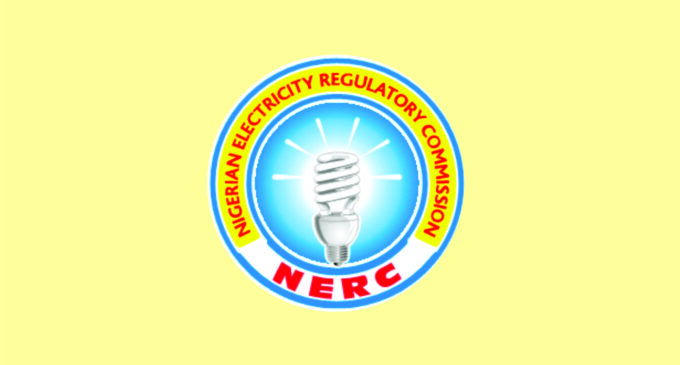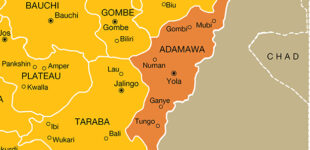Response by NERC to Senate Query

The Response by the Nigerian Electricity Regulatory Commission (NERC) to the Query of the Senate on Fixed Charge, Estimate Billing and Sundry Issues
The Nigerian Electricity Regulatory Commission (NERC) congratulates the leadership of the Nigerian Senate on its election to lead the Upper House of the 8th National Assembly. We pray for wisdom and courage for the leadership of the Senate to sustain our democracy and improve human development.
NERC supports the Senate decision to investigate the various projects and funding in the power sector since 1999. We believe that transparency is the hallmark of an effective electricity market and therefore we are in support of all activities that will enhance the transparency and accountability of the Nigerian electricity supply industry. It is in expression of our commitment to transparency and accountability that we became the first public agency In Nigeria to openly and publicly pledge to the Freedom of Information Law. We have continued to make those mandatory disclosures required by the FOI Law. It is for this sort of unusual commitment to openness and accountability that the House of Representatives Committee on Reform of Government adjudged NERC the most FOI-complaint public agency in Nigeria.
We also believe in the importance of the oversight responsibility of the National Assembly. The effective exercise of this parliamentary responsibility will enhances the quality of the regulatory and policy landscape of the NESI. This is why we continue to avail the National Assembly of every necessary cooperation in its oversight functions. In this wise, we present the following brief to respond to the queries which the Senate has issued for NERC to respond. Although we are yet to receive the official communication of the queries, we have gone ahead to collect the records of proceedings of the Senate for that day and now provide the response.
Query No.1: Management of Complaint by Electricity Consumers
Pursuant to the consumer protection mandate of the Commission as contained in section 80 of the Power Sector Reform Act, NERC has issued out critical Regulations that provide framework for effective remedies for violation of consumer rights and effective resolution of consumer complaints. We understand that while we work hard to attract investment into the sector through business friendly regulation we must ensure strong consumer protection and enforcement of high service qualities. One of the many regulations to protect consumer right of access to quality of service and effective remedies is the Regulation on Customer Complaints Handling: Standards and Procedures (copy attached). This regulation stipulates as follows:
• Every Disco should establish functional Customer Complaints Units to receive and resolve all complaints from customers on electricity supply within its area of operation. A time line of 15 days is specified in the Regulation for the resolution of complaints by the electricity customer after which an appeal can be lodged at the Forum Office
• The Forum Office represents the next level that the electricity customers can seek redress from the non-performance of Discos in resolving their complaints. Presently NERC has established at least 1 Forum office in all the Discos to act as an Appellate body in resolving complaints from electricity customers not satisfactorily resolve by the Customer Complaints of the Discos.
• The Commission monitors all complaints reported to the Discos on monthly basis and analysis the reports to ensure that Discos carry out their responsibilities (copies of the reports are attached for ease of reference)
• The Commission has recently penalised Abuja Electricity Distribution Company for overbilling its customers and ordered it to refund the overbilled amount and apologise to the customers for the wrongful estimation. Abuja Electricity Distribution Company has refunded about 32,000 customers so affected. The refund has ranged between 5,000 and 15,000 per customer, adding up to over N50million.
I need to emphasize the peculiar nature of the Forum Office that makes it an effective complaint management mechanism. The Forum Office is constituted of representatives of important stakeholders like the Manufacturers Association of Nigerian (MAN), the Consumer Protection Council (CPC), the Nigerian Society of Engineers and representative of local Civil Society Organization. The members elect their own chairman and hearing complaints from consumers. Their decisions if not appealed against are enforced by the Commission. This is perhaps the most democratic forum for complaint management in Nigeria. It is modelled after the New Delhi example.
We recognize that in spite of this innovative and elaborate complaint management system there are still too many complaints about service failure in the NESI and the distribution companies are not doing enough. In the past we have tolerated some degree of non-responsiveness because of the nascence of the industry. After close to two years of takeover of the network, we have decided to ramp up enforcement of these breaches. We have started with the enforcement action against the Abuja Disco and the ongoing enforcement actions against the other 11 discos.
Query No. 2: The Abolition of Fixed Charge
NERC respectfully argue that the fixed charge that consumers pay in the Nigerian electricity market is not illegal or necessarily fraudulent. Fixed charges (appearing in different names) are part of the electricity markets across the world. The difference in Nigeria could be that we don’t have good supply of electricity because of legacy problem of lack of generation capacity. Therefore, consumers often pay fixed charge for epileptic or no power supply. Electricity consumers IN Nigeria pay both fixed and energy charge. The purpose of the fixed charge is to recover the capital and fixed cost of the various operators in the industry. Section 32 of the EPSR Act 2005 mandates the Commission to approve tariff that allows investors recover their prudent cost with reasonable return on the assets invested in the business. The operators invest in assets on a regularly basis and recover their investment through fixed charge paid by the consumers. In addition to this, it should be noted that once an asset is bought and a consumer is connected to the network, the utilities by law are expected to recover the cost of that investment whether energy is supplied or not.
Secondly, fixed charge is not tied to consumption as stated above and it is not peculiar to Nigeria alone. Many utilities all across the world charge fixed charge. In essence, it is a universal practice and practiced in many countries all over the world. Fixed charge is separately identified on bills in most countries, and is often called the ‘daily supply charge’ or ‘service to property’ charge. It can be displayed as a daily rate on customer’s bills in some countries (e.g. in ‘cents per day’), but may appear as a single figure for a billing period.
The generators are paid both capacity and energy charge. Capacity payment to generators covers their capital cost, fixed operations and maintenance cost and 2/3 of tax cost. 75% of the capacity payment is recovered through the fixed charge paid by the consumers. The breakdown of how the fixed and energy charge is apportioned amongst various operators is illustrated in the table below. Abolishing fixed charge may impact negatively on the generators who have invested a lot and are continuously making investments in an effort to provide more stable electricity to Nigerians.
TCN and the Discos recover most of their cost through energy payment as clearly illustrated below
The above table provide clarity on the basis for charging Fixed Charge for consumption of electricity. It is an important component of the Multi-Year-Tariff-Order (MYTO). The MYTO is the approved methodology for determination of the cost of carrying out the business of Generation, Transmission and Distribution of electricity in Nigeria. MYTO equally enables the revenue derived from the industry to be shared proportionately among all the operators in accordance with their revenue requirements for Capital and Operating Expenditure (CAPEX and Opex).
In recognition of the negative impact of the fixed charge the Commission has held several public consultation to find a measure that will guarantee financial viability in the industry and not expose consumers to paying for electricity not consumed. Based on the intervention of the Commission the distribution companies have agreed to find a way to restructure the fixed charge such that a customer who does not receive electricity supply does not pay fixed charge. This remodelling of the fixed charge will be part of the ongoing tariff review process being conducted by the distribution companies.
NERC will continue to ensure that whatever model is presented for its approval is fair, reasonable and ensures the survival of the new electricity market and improves quality of supply to consumers.
Query NO. 3: BULK METERING OF CUSTOMERS
The Commission agrees with the Senate’s position on the need to eliminate the practice of bulk billing residential customers and replace the practice with individual metering and billing. It is important to state that the Commission had previously abolished bulk billing in its ruling on the VGC Case CASE NO: NERC/H/03/07 (copy attached). This case was brought by a customer against the VGC Estate Management and the Eko Electricity Distribution Company in 2008. The Commission ruled in favour of the customer. The decision of the Commission stipulated that the every customer is expected to be metered individually irrespective of the status of supply coming into the area and the class of billing should be on R2 or as appropriately determined by the Disco.
The Commission has however provided a leeway for estimation in situations where residential meters are not provided to customers. This is provided in the Estimated Billing Methodology Regulation of the Commission (copy attached). In this instance, statistical meters installed at transformer substations are used to calculate the energy to be used as basis for estimating customers on the feeders.
Communities who are placed on bulk billing should reject it and insist on individual metering. The Commission is in the process of completing public consultation on a proposal to cap the amount an unmetered customer can pay until he or she is metered. The proposal will also commit distribution companies to strict deadline for metering of all its customers. In the interim, the Commission has abolished connection of new customers without meters.
Query No. 4: CUSTOMER SENSITIZATION
The Commission has in place a robust and on-going customer sensitization program known as the Power Consumer Assembly (PCA). This program involves the Commission staff going to all the knocks and crannies of the Country to sensitize Nigerians on the rights and obligations of the electricity customers.
The PCAs have been carried out in conjunction with Discos and other stakeholders like the Consumer Protection Council. Messages on Customer Protection Regulations, Energy Efficiency, MYTO and Health and Safety tips are also highlighted during PCAs.
The Commission has held National, Regional, States and Local Government PCAs to enlighten Nigerians on progress in the power sector. We have also undertaken several television and radio programs to inform consumers of their rights and development in the electricity industry. We also undertake several public consultations on several issues in the sector and any proposed legislation.
Discos have also been mandated to carry out sensitization programs as part of their tariff review exercise. The Commission will to monitor customer engagements by distribution companies as this one of the Key Performance Indicators (KPIs) that defines quality of service in the industry.
Query No. 5: PAYMENT FOR METERS AND OTHER CAPITAL ITEMS
As earlier pointed out, the MYTO model provides for all the cost elements (CAPEX and OPEX) required in the Generation, Transmission, Distribution and Supply of electricity to customers’ premises. These cost elements are embedded in the customer’s monthly electricity bill. The customer is not expected to make any other payment for electricity supply outside the monthly tariff as approved by the Commission.
There are however a few exceptions where a customer may make payments for Capital items and get refunded. One of them is the CAPMI (Credited Advance Payment for Metering Implementation). CAPMI is designed such that willing customers can advance funds for the purchase and installation of meters.
These advance payments are subsequently refunded through a rebate on the fixed charge element of their electricity bills over time. Once the money is advanced, the customer will get a meter installed within 45 days of payment. The amount to be paid by the customer will depend on the type of meter installed.
DISCOs shall refund the customer the cost of the actual meter and accessories. The cost of installation and VAT shall however be retained. The refund due to customers shall be with 12% interest and will be done through a reduction of 100% of the monthly fixed charge component of their electricity bill.
The Commission is presently carrying out a comprehensive audit of the CAPMI scheme to ensure compliance by Discos.
Query No.6: REGULATIONS FOR INVESTMENTS IN ELECTRICITY NETWORKS IN NIGERIA
This Regulation was approved by the Commission to enhance the ability of the Operators to encourage Investors to carry out network expansion project and get compensated through the tariff.
The Regulation would also cater for the small developers who may wish to invest in the procurement of Poles, Cables and Transformers and get adequately compensated by Discos. Some of the features of the regulation include the following:
(a) Nationwide electricity credit check and control in respect of the entity;
(b) Feasibility study;
(c) Planning and design;
(d) Construction standards;
(e) Capital contribution by the entity in comparison with MYTO provisions;
(f) Procurement procedure;
(g) Construction and Commissioning procedure;
(h) Formal hand over and connection of completed project;
(i) Payment/Amortization schedule; and
(j) Dispute Resolution
Query no.7: QUARTERLY REPORT
The Commission as a statutory requirement renders its quarterly report periodically. Copies of previous quarterly report submitted to the National Assembly are hereby attached for ease of reference.
Respectfully, submitted.
Dr. Sam Amadi
Chairman and Chief Executive















There are no comments at the moment, do you want to add one?
Write a comment